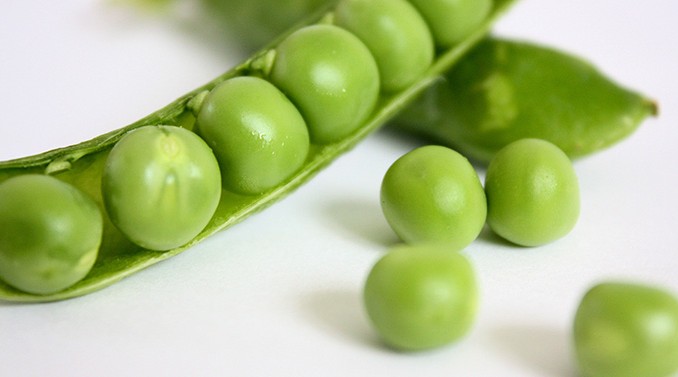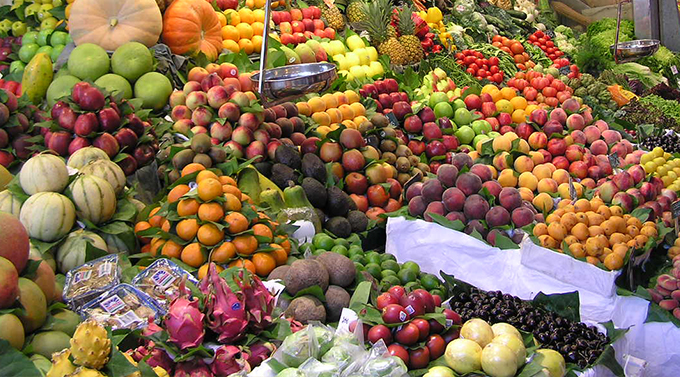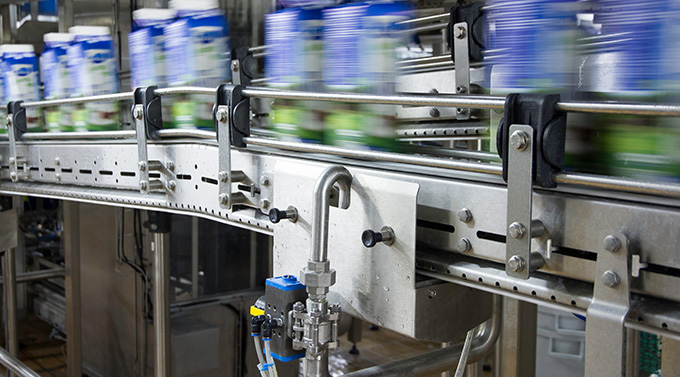
Adopting a new diet will undoubtedly change the individual, but what about the larger impacts? In this article, I will describe four food trends that not only affect our health, but also the way we produce our food and what it means in terms of food safety.
1. We want to minimize our consumption of salt, sugar and fat
 Today, we want to stay healthy and live longer. We want our food to be as nutritious as possible and contain a minimum of unhealthy ingredients. Consequently, many food producers reduce the amount of salt, sugar and fat in their products. This may be good for our health, but cutting these ingredients in products, also allows microorganisms to grow. Microorganisms need water to grow, and if there is enough salt, sugar or fat in a product, the microorganisms cannot absorb water. As a result, when you cut these ingredients, you get a product that is much more sensitive to bacterial growth.
Today, we want to stay healthy and live longer. We want our food to be as nutritious as possible and contain a minimum of unhealthy ingredients. Consequently, many food producers reduce the amount of salt, sugar and fat in their products. This may be good for our health, but cutting these ingredients in products, also allows microorganisms to grow. Microorganisms need water to grow, and if there is enough salt, sugar or fat in a product, the microorganisms cannot absorb water. As a result, when you cut these ingredients, you get a product that is much more sensitive to bacterial growth.
2. We want to eat healthy, unprocessed and nutritious raw food
There is a strong trend to keep as many minerals, vitamins and antioxidants in our food as possible. We do not want to over process our food and raw food is becoming increasingly popular. Raw food usually means uncooked food, or more specifically, food in its natural state. Technically speaking, it is food that has not been heated above 42 degrees Celsius, or 117 degrees Fahrenheit. But cooking with low heating temperatures also means that the food is not heated enough to kill all microorganisms. This makes raw food very sensitive and prone to bacterial growth.
3. We eat a lot more exotic food due to globalization
 Globalization is affecting us in many ways, not least when it comes to food and the changing networks of food supply. We import and handle more and more exotic food from other parts of the world. Bringing these new foods into our own country also means bringing new microorganisms. Sanitation practices for food handling are not equivalent throughout the world. Importing these new foods can move diseases from areas where they are indigenous to locations where they are seldom found or do not exist. The products we produce based on the exotic food are therefore much more sensitive to bacterial growth.
Globalization is affecting us in many ways, not least when it comes to food and the changing networks of food supply. We import and handle more and more exotic food from other parts of the world. Bringing these new foods into our own country also means bringing new microorganisms. Sanitation practices for food handling are not equivalent throughout the world. Importing these new foods can move diseases from areas where they are indigenous to locations where they are seldom found or do not exist. The products we produce based on the exotic food are therefore much more sensitive to bacterial growth.
4. We have higher demands on clear, clean and understandable food declarations
Clean Label is a monumental trend in today’s global food and drink industry. The consumers want simple food labels and natural, additive-free and organic food. Cutting additives can be done without risks, but when it comes to preservatives it is important to be careful, as a reduction of them may increase the growth of microorganisms. Preservatives prolong the shelf life of food by protecting them against deterioration caused by microorganisms. Reducing the preservative in a product simply makes it more sensitive to bacterial growth.
Higher demands on hygiene and food safety in the production process

Common to these four trends is that they all affect the way we produce our food. They put tougher demands on the production process because the products are much more sensitive to bacterial growth. Moreover, sensitive products put higher demands on hygiene and food safety in the entire production process in order to prevent foodborne illness caused by microorganisms. This includes not only the handling, preparation and storage of the food, but also the handling of production equipment.
In my next article, I will go further into how the production process has changed and the factors that affect the durability of a product.
Did you enjoy my article about food trends?
If so, let me know by sharing it on Facebook and LinkedIn! Also, keep an eye out for the second part of my series! If you have any questions about food safety, please contact me, and I will be happy to answer your questions.




Leave a Reply